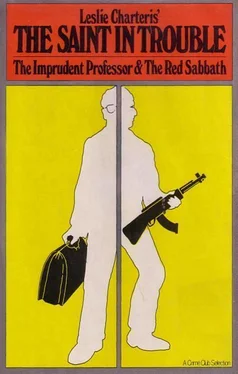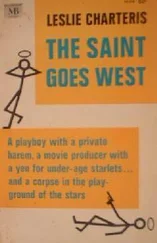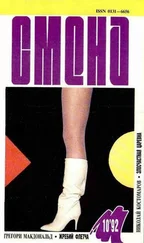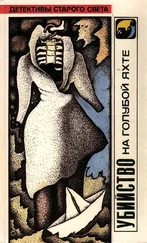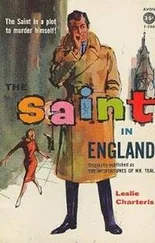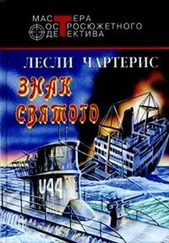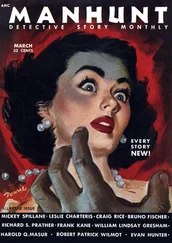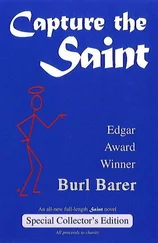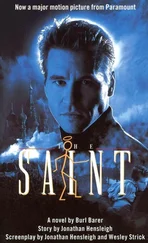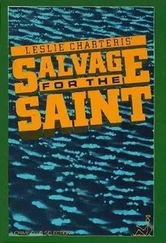Simon Templar drew a deep satisfied breath.
“Okay, Harry, you’ve done a good job. I’ll recommend you for a Star of David.”
“That’s fine, Mr. Templar,” Harry said. “But what about me money?”
“Tomorrow night, usual place, same time. Now toddle off and get some food.”
The man needed no further prompting. The Saint waited until he had heard the van’s engine splutter into life before he swung himself over the fence and started towards the building Harry had indicated.
What had seemed at first like a profligate squandering of priceless time now justified itself; the dusk had finally deepened into dark, and the operation that he contemplated cried out for the co-operation of nightfall. Furthermore, now that two of the Ungodly had set off in plenty of time to meet the deadline on Waterloo Bridge, the numerical odds against him had been significantly reduced.
And it still wasn’t going to be easy.
The factory was a perfect example of Victorian utility architecture at its most hideous, but he needed only a brief look to understand its attractions for the terrorists. It stood four storeys tall, surrounded by high walls on three sides and flush with the canal on the fourth. Between the factory and its perimeter boundaries was a wide courtyard, the whole of which was clearly visible from any of the windows at the front. The building itself was flat-fronted and featureless except for the rows of small barred windows that marked the different levels of the floors, giving it more the look of a prison than a place of work. Not, he reflected wryly, that there was probably much difference between the two when the towering chimneys at either end of the building had belched smoke for the first time.
The only entrance to the courtyard was through a wide archway, and there was nothing between it and the factory that even a cat could have used for cover. The Saint considered the problem.
“Looks like we have to risk getting wet,” he decided.
He picked his way carefully between the piles of rubble and knee-high nettles, and followed the wall around the side of the factory until he reached the canal.
The water was blacker than the sky and smelt like an unventilated sewer. The bank was littered with chunks of rusting iron, rotting furniture, and heaps of assorted household refuse. The top of an old car was just visible above the top of the water.
The rear of the factory rose sheer from the water’s edge, except for the crumbling remains of a short wooden jetty in the centre and a narrow catwalk that linked it with each end of the building. Above it on every floor were doorways, each with its own hoist, that had once served to transfer the company’s goods to and from the canal barges.
The rear wall of the building looked ready to slide into the water the first time a stiff wind blew, but the chance of a fall was less uninviting than the probability of collecting a bullet in a frontal assault, and he saw little attraction in being the moving target in a shooting gallery. He stepped onto the catwalk, pressed his back against the wall, and started to edge sideways towards the jetty.
The stone under his feet had been worn smooth by the weather, and the subsidence of the building had caused the ledge to tilt downwards so that every step was an individual performance in the art of balancing that would not have disgraced a tightrope walker. The Saint pressed the flat of his hands against the wall, drawing an absurd sense of security from the feel of his fingers probing the shallow cracks between the bricks, in the same way that a soldier under shellfire hides behind a bush.
His progress was agonizingly slow, and all the while he was aware that time was ticking away. With every minute spent trying to find a way in, his chances of reaching Leila and getting out again before the terrorists arrived back diminished. At one spot a yard of the ledge had completely broken away, and he had to turn on his toes until he was facing the wall and search for crevices in the brickwork large enough for him to curl his fingers into. He stepped into space supported only by the fingertips of one hand while his other desperately tried to find a similar hold. A loose brick dislodged by his probing slid from the wall and landed with a splash in the water below, and then his foot touched the ledge again and he was able to take the strain from the muscles of his hand and arm.
The ledge widened as it reached the jetty and he was able to turn sideways onto the wall as he tested the strength of the planking by pushing out one leg and slowly lowering his weight onto it. The board creaked in protest but held. He glanced at his watch and was shocked to learn that it had taken him nearly fifteen minutes to travel twice that number of yards. It was a quarter to eight. Already the rendezvous would have taken place and in fifteen minutes, possibly less, they would have arrived back.
Two heavy doors led from the jetty into the factory. A thick iron chain and padlock had been passed through the handles and he swore swiftly as he knelt and examined the barrier. Despite the thick coating of rust it was still strong enough to resist anything short of a sledgehammer. The handles themselves offered brighter prospects. They too were of iron, but much older and more corroded than the chain, and the wood to which they were fixed was badly rotted. They moved slightly when he pulled against them with both hands, and he glanced around desperately for anything that could be used as a lever.
At each end of the jetty were fixed wooden posts about four feet high that had once supported a gate designed to prevent sacks slipping into the canal. He grasped the top of the nearest one, spreading his legs apart and bending his knees to brace himself, and applied every ounce of his strength as he pulled. The post tore free of its fastening, and he toppled backwards and only just managed to stop himself tumbling off the platform.
He slipped the post through the door handle, placed one foot against the door, and threw his whole weight backwards.
The handle took a jagged square of wood with it as it came away with a crash that splintered the still night air like a gunshot, at the same time dragging the door open.
The Saint slipped through the gap and into the factory, drawing his gun as he went.
He found himself in a high-ceilinged room that appeared to take up the whole of the ground floor. The only light was provided by the pale rays of the moon that filtered through the glassless windows high above his head. Beside the jetty doors a stone staircase curved upwards to link with the floors above, and he waited at the foot of it until his eyes became accustomed to the gloom.
It was impossible for the noise of his entrance not to have been heard by the men in the building. But there was a fair chance that they would attribute it to the spontaneous collapse of one of the rotting timbers, or to some outside happening, instead of to a break-in. Harry had indicated the third floor at the front, and if they were still there they might not have been able to identify the sound accurately. At any rate, that was what he had to hope for.
He climbed the stairs to the next floor without incident. It was similar to the one below, except that the ceiling was lower and he could just make out partitioned sections at one end that had previously served as offices.
In the second floor, the staircase led to a corridor, and he followed it to the front of the building. The boards creaked as he moved although he kept close to the wall, unable in the half light to determine whether the darker patches in the centre of the passage were merely pools of shadow or holes. He glanced into the rooms on either side, but all were empty and derelict and in many the floor had partially collapsed and he could see through to the floor below. The corridor merged into another wider one that ran the length of the front of the building to a staircase at either end. His watch showed 8:05 as he turned left and quickened his step.
Читать дальше
